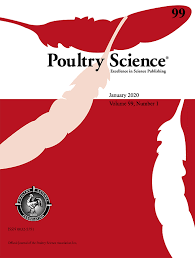Document type : Article published on the Veterinaria Digital website
Author: Paula Arroyo
[…]
Concluding remarks
Preview: Can we predict the behavior of the sows and their role as mothers? During the first weeks of life, piglets depend on maternal care.
Table of Contents
1 What do we know about the behavior of the sows?
2 What factors do we know that affect behavior?
3 Is there a relationship between behavior and productivity?
4 In the first weeks of life: Can future behavior be conditioned?
5 Does the mother's behavior vary according to the age of the piglets?
6 Is the impact of genetics on behavior known?
In pig farming, two very important efficiency parameters are the number of piglets weaned and the weaning weight of the piglets. Both parameters are related to the maternal care received by the mother. With this in mind: Can we predict the behavior of the sows? And what role does this play in their maternal capabilities?
Within the different stages of production, the lactation stage is the most vulnerable for the piglet. A considerable percentage of piglet mortality can occur during lactation, with maternal crushing being one of the main causes of death. Significant evidence indicates that piglet crushing is related to individual differences in the behavior of the sow. On the one hand, some sows respond to the alarm squeals of their piglets and rise in response to the vocalization of trapped offspring, while other sows do not react. In addition, in intensive systems where moving away from the young is not possible, sows limit suckling by standing, sitting, or lying ventrally, which increases the frequency of risky situations for the piglets. […]
Concluding remarks
Currently, along with environmental and management studies and research, studies of the behavior of the sows (ethology) are also important to improve the productive efficiency of pigs. The knowledge of ethological patterns is a relevant step for the application of Animal Welfare measures, which will allow to improve management and achieve higher reproductive efficiency, and therefore higher profitability of the farm.
The increased interest in this topic creates opportunities for veterinarians to take a new position in scientific and technological aspects, a new social and educational role to improve the lives of animals. At the same time, animal care personnel must be familiar with the specific behavior of swine.
A variety of environmental elements, as well as aspects of the behavior of the sows, must now be considered. These criteria provide the basis for sow selection and breeding. In addition, they make it possible to predict, before the first farrowing, their temperamental profile, and its effect on the piglets. These observations allow obtaining benefits at the productive level in swine production.
Finally, it is recommended that the sows destined for replacement should be raised by their mothers, to allow correct learning during breeding. With the study of the behavior of the sows, the movement restrictions that the animals have in intensive confined farms can be reduced.






